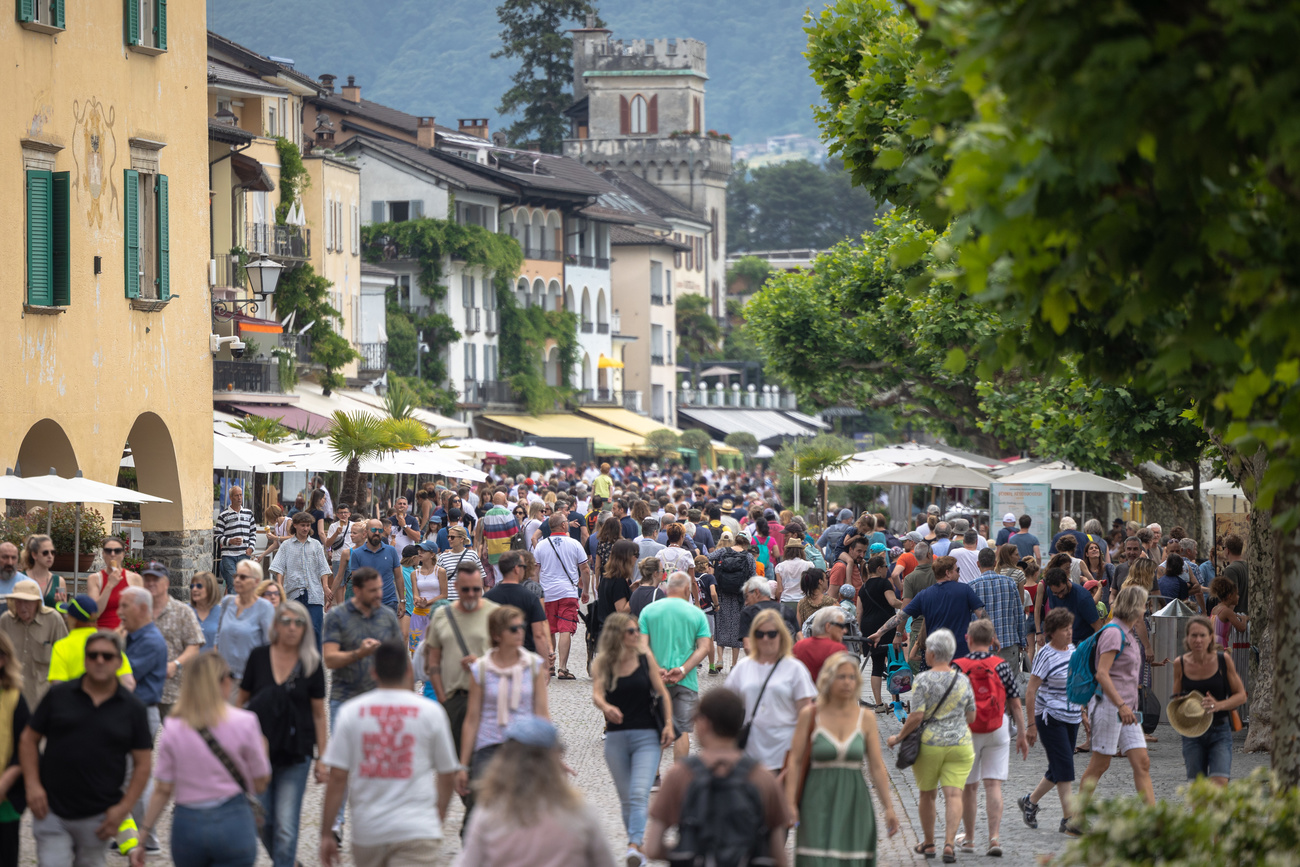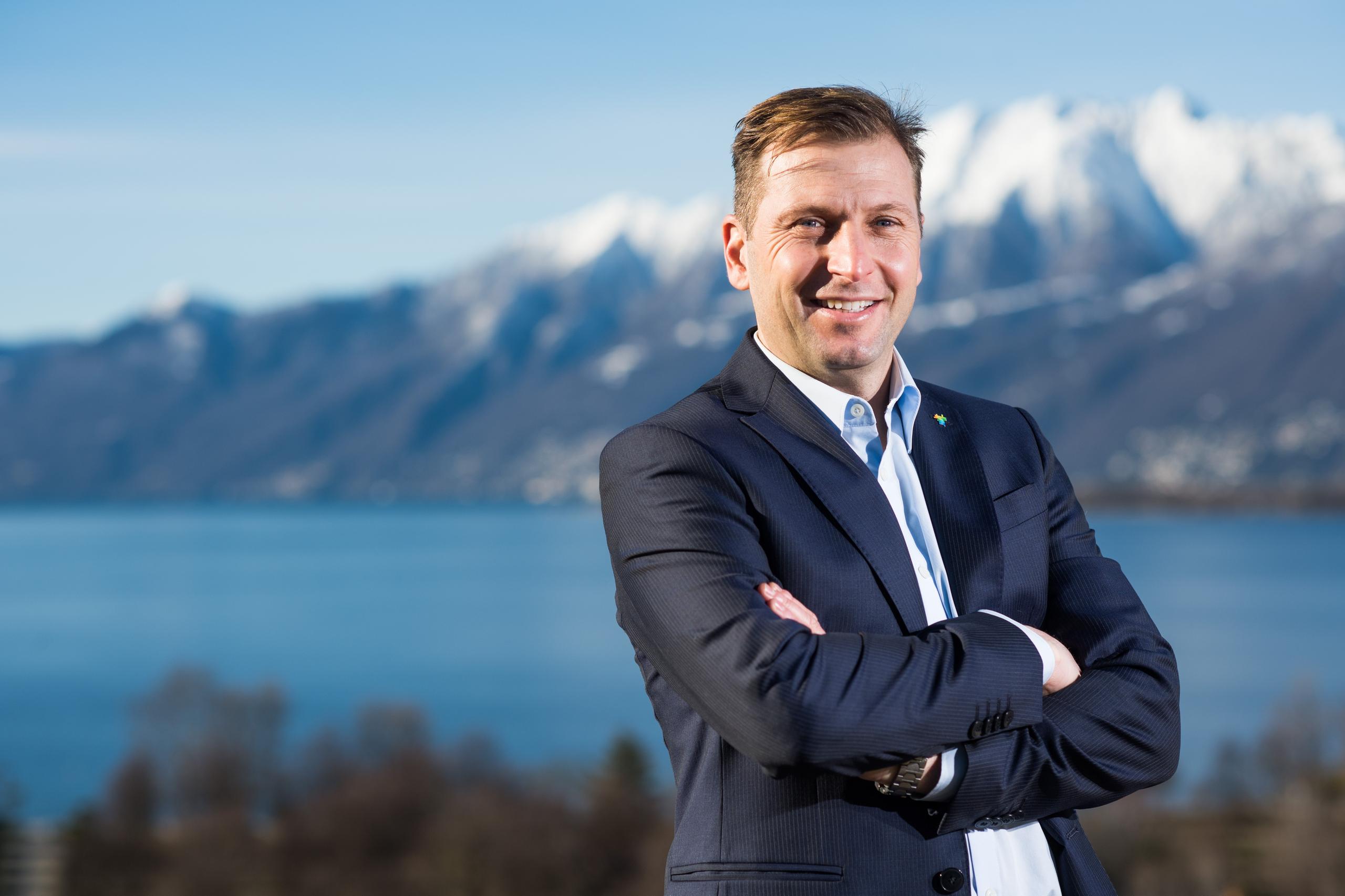
Italian-speaking Switzerland is more than just a weekend getaway

Simone Patelli, president of ‘Ticino Turism’ – the tourism bureau for Switzerland's southern canton of Ticino – is determined to dismantle certain stereotypes about his region. He spoke to SWI swissinfo.ch in Tenero at the northern tip of Lake Maggiore.
SWI swissinfo.ch: According to your own figuresExternal link, 2023 was a bad year for tourism in canton Ticino. But for Switzerland as a whole the number of overnight stays reached an all-time high (nearly 40 million). How do you explain this discrepancy?
Simone Patelli: The [Covid-19] pandemic years were exceptionally good for tourism in Ticino because the Swiss population had to opt for holidays within the country, [and many chose to visit] Ticino. It would therefore be wiser to compare 2023 with 2019, the year prior to the pandemic. On that basis, we’re seeing moderate growth.
SWI: How has tourism in Ticino evolved in recent years?
S.P.: In the last few decades, we have benefitted from many private investments, often stimulated by cantonal incentives. I’m thinking, for example, about the inauguration of various tourist attractions like spas and cinemas as well as the modernisation of a large number of hotels.

SWI: What are Ticino’s main tourist attractions?
S.P.: Our tourism profile is rich and diverse. It combines lakes and mountains as well as varied cultural and culinary traditions, all within a small area. Our attractions are not just limited to the Locarno Film Festival. In short, we offer Mediterranean hospitality coupled with Swiss safety.
SWI: What regions are your primary competitors?
S.P.: Our Swiss competitors are primarily the cantons of Valais and Graubünden. At the international level, we compete with destinations like neighbouring Austria and [Italy’s] Aosta valley for their mountains and with [the] Liguria [region] and Lake Garda [in Italy] for their Mediterranean feel.
SWI: What specific steps do you take to attract tourists?
S.P.: We focus on certain countries and launch advertising campaigns, often in cooperation with the national organisation Switzerland TourismExternal link. This collaboration is crucial, especially when we’re aiming for overseas markets.
SWI: Do the national authorities and organisations that support Swiss tourism understand Ticino’s unique characteristics?
S.P.: Since our canton plays a key role in Swiss tourism, our attributes are well understood. In addition, among the 13 board members of Switzerland Tourism, two are from Ticino.
SWI: What kind of tourists are you seeking to attract?
S.P.: We favour tourists who are interested in exploring Ticino in depth – and who respect our environment. We don’t want mass tourism or people simply passing through.
SWI: How do you encourage tourists to stay longer in your canton?
S.P.: You raise an important point, especially for environmental reasons. To encourage our tourists to stay longer in our canton, we propose packages and highlight the diversity of our activities and our region.
We also offer “Ticino Tickets”, which include – for a person’s entire stay – free public transportation as well as discounts on certain attractions and ski lifts.
SWI: Ticino is very popular with Swiss-German tourists for the long Easter and Ascension weekends and during school holidays. Are these intermittent waves of tourists problematic?
S.P.: We will continue our efforts to extend the tourism season beyond the months of July and August and the school holidays of the other Swiss cantons. To accomplish this, we’re emphasising that our canton is perfect for outdoor activities throughout many months [of the year], and we’re encouraging our tourism industry to stay open for longer.
These efforts to smooth out demand have already paid off, but there is still plenty of potential for improvement. In addition, we plan to enhance the collaboration between the different cantonal entities and regions, for example to attract more business tourism.
SWI: Wouldn’t it be wise to attract more international tourists?
S.P.: It is true that most of our tourists come from Switzerland, followed by Germany and Italy. Nevertheless, we’re seeking to attract more tourists from the United States, the United Kingdom, the Nordic countries, France, the Benelux countries, and the Gulf states.
This type of diversification is essential for better risk management. At the same time, we’re aware that diversification also creates complications and requires effort, especially in terms of broadening our expertise.
Edited by Samuel Jaberg.

In compliance with the JTI standards
More: SWI swissinfo.ch certified by the Journalism Trust Initiative































You can find an overview of ongoing debates with our journalists here . Please join us!
If you want to start a conversation about a topic raised in this article or want to report factual errors, email us at english@swissinfo.ch.